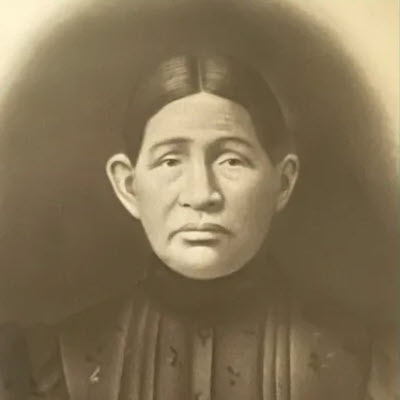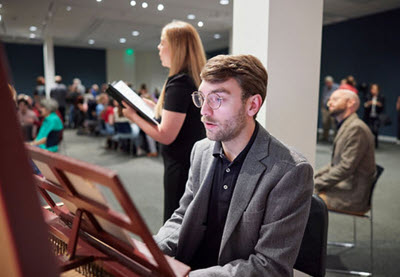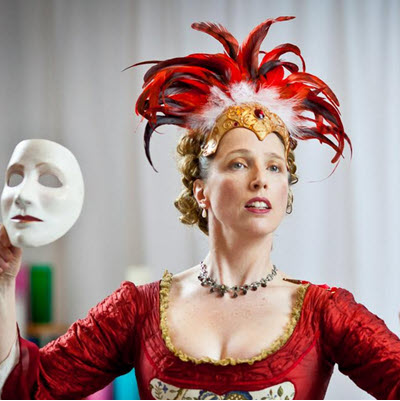by Tina Vadaneaux
Published May 13, 2024
The Continuo Foundation focuses on early-music chamber projects in historic country houses, churches, pubs, and even barns, across 180 locations in the U.K.
Continuo Foundation has awarded almost $1 million in grants that have unleashed creativity, driven growth, and enabled musicians to share music in person, in recordings, and on film
The 2023 coronation of King Charles III was one of the most glorious occasions in recent British history. Aside from the fabulous costumes and timeless pageantry, there was an uplifting program of music to accompany the pomp and circumstance, performed by some of the world’s best-known British musicians.
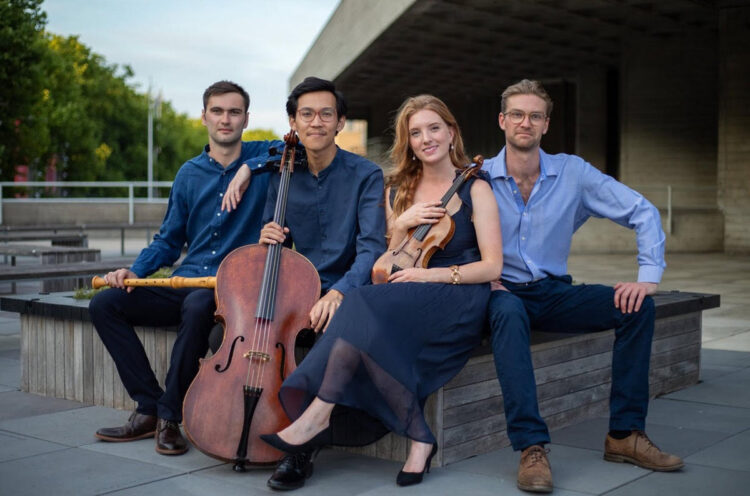
Indeed, a hallmark of the British music scene is the extraordinary range of period-instrument ensembles presenting repertoire from the Middle Ages to new commissions. These groups often feature regular members of world-famous period-instrument orchestras, who enjoy collaborating on smaller-scale projects based on their own research. These smaller ensembles can easily perform in a wide range of interesting venues, bringing early music to new audiences up and down the British Isles.
It is in this arena that Continuo Foundation, a non-profit organization specializing in early music, has focused its efforts and driven a flourishing of chamber music projects in the many historic country houses, churches, pubs, and even barns, across 180 locations in England, Scotland, Wales and Northern Ireland. (Notably, almost all the historically informed instrumentalists and singers who performed at the coronation were among the thousand freelance musicians who have been supported, at some level, by Continuo Foundation grants.)
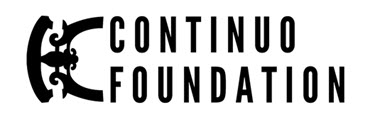
Founded in 2020 to support the individuals and ensembles that make up British early music, Continuo Foundation has attracted leading figures as patrons — sopranos Mary Bevan MBE and Dame Emma Kirkby, conductor Sir Roger Norrington, and violinist Rachel Podger — and has been raising funds from private sources and deploying these funds strategically through two rounds of project grants each year.
Continuo Foundation takes an innovative approach to funding by using a very straightforward application process. The advisory panel members who review these applications are early-music experts — including a Baroque festival artistic director, a former leader of the Academy of Ancient Music and the Orchestra of the Age of Enlightenment, a prominent choral conductor, as well as scholars and instrumentalists. They rank the projects based on artistic excellence, creativity, musical interest, and audience engagement potential. This process has yielded acclaimed results, and projects awarded a Continuo Foundation grant are known for their quality and interest.
To date, Continuo Foundation has invested £750,000 (almost $1 million) in project grants that have unleashed creativity, driven growth, and enabled musicians to share music in person, on film and in recordings.
Although there have been numerous American musicians among our grantees, we require that ensembles (three or more instrumentalists) that apply are resident in the U.K. There are examples of groups who have primary members who are Americans living in the U.S., but this is the exception rather than the rule.
A project selected in the most recent grant round, called “Sons of England,” will explore a different vision of the English Baroque. Performing music by freed slave and prominent abolitionist Ignatius Sancho, alongside that of Henry Purcell and George Frideric Handel, the Academy of Ancient Music will collaborate with acclaimed American countertenor Reginald Mobley, who has curated this program — and recently sat down for a feature interview.
In addition to the Baroque, there are outstanding ensembles specialized in Medieval, Renaissance, Classical and early Romantic repertoire, not to mention new compositions for period instruments. In the Tudor period, for example, both King Henry VIII and his daughter, Queen Elizabeth I, were keen music lovers. During Elizabeth’s often violently Protestant reign, it is surprising that much of the music for the Anglican Church was composed by Thomas Tallis and William Byrd, both Catholics.
Following in the tradition of the Tudors, Britain is home to a number of outstanding viol consorts, both established groups and emerging artists, of which six have received Continuo Foundation grants. One of these, “Secret Byrd,” a joint U.K.-U.S. project, involved a tour with immersive, staged performances by The Gesualdo Six, an early-music vocal group, joined by Fretwork Consort of Viols (in the U.K.) and U.S.-based musicians (for the American dates).
Marking the 400th anniversary of the death of Byrd in 1623, the “Secret Byrd” musicians re-created a clandestine Catholic mass with music by William Byrd, himself a recusant Catholic who could only worship in secret, under threat of execution if caught. This production, with more performances scheduled for later in 2024, was created by Bill Barclay, artistic director of Concert Theatre Works and New York’s Music Before 1800.
Making Connections
In 2023, the Foundation launched a digital hub called Continuo Connect, a go-to guide to British early music. Continuo Connect is fundamental to the Foundation’s mission and extends its reach across a wider and more diverse footprint. The website offers a professional platform for those working in early music in Britain (not just the many ensembles awarded grants by the Foundation) to help them raise their profiles and connect with wider audiences.
For the public, Continuo Connect provides comprehensive concert listings — including hard-to-find events in out-of-the-way venues — and is a guide to early-music festivals, articles, interviews, and artist profiles with links to their websites, social media, Spotify, and YouTube videos. Continuo Connect invites discovery of all the riches the early-music scene has to offer.
The largest concentration of concerts on Continuo Connect is in and around London, but early music is thriving in many corners of the country. Oxford and Cambridge, certainly, regularly offer concerts in their many wonderfully atmospheric venues. Not least among these is Oxford’s Holywell Music Room, which (having opened its doors in 1746 and hosted both Handel and Haydn) is thought to be the first purpose-built concert hall in Europe. The many beautiful and historic chapels of the Oxford and Cambridge colleges, birthplace of the English choral tradition out of which the British early-music revival evolved, also play host to performances, often featuring the resident choir alongside period-instrument ensembles and outstanding soloists.
The English heartlands also form part of the early-music ecosystem: York boasts the National Centre for Early Music; the bewitching town of Saltaire, built by Sir Titus Salt (think Elon Musk, 19th-century style), hosts The Early Music Shop, a renowned provider of period instruments; and Manchester Baroque and Leeds Baroque, to name but two, offer regular concert programs among the gleaming cosmopolitan cities of England’s North.
Take, for example, a recent series produced by Manchester Baroque. Kicking off a new festival in the “Medieval Quarter” of Manchester — which includes the city’s Cathedral, rebuilt in Gothic style in 1421, and the historic Chetham’s School of Music — Manchester Baroque presented the first in their “Musick in Manchester” series, melding scholarship and musicianship to rediscover and reconstruct the very first public concert series given in Manchester, back in 1744-45. (The observant reader will immediately spot that Manchester was slightly ahead of Oxford!)
For American ensembles, we are helping publicize an upcoming U.K. tour by Julliard415 and Yale Schola Cantorum, and are happy to do this for other U.S. early-music ensembles who are coming to Britian and need to reach new audiences. (The Yale Schola’s conductor, David Hill, is a member of our expert advisory panel.)
Like many in Britain’s past, whether king or minstrel or humble concertgoer, we continue to grow our strong cultural connections across “the pond,” and even to draw inspiration from America to innovate. For example, tying together many threads of this article is a recent project by pioneering group Liturina who collaborated with Jonny Mansfield, a composer and performer working in jazz — that most American of musical art-forms. This project brought together the music of Bach with virtuosic jazz rhythms and free collective improvisation, all performed by exciting young early-music specialists, and proudly supported by Continuo Foundation.
In short, the British early-music scene is flourishing, and Continuo Foundation is excited to be at the center of it all. Continuo Connect is a window into this world, and our grants are supporting historical performance of the highest quality. Together, these two strands of activity are bringing the joy of early music to audiences everywhere and helping musicians thrive.
We’d love to invite you, our North American friends, to visit us at Continuo Connect, where we offer program ideas, inspirations, curated playlists, and articles by and about musicians. Although, for now, all of our funding is for projects taking place within the U.K., we are happy to connect concert organizers or festivals in the U.S. with British artists and ensembles on an informal basis.
For an American audience, our concerts may be a little far for an evening out. But we hope you’ll enjoy discovering and reading about the many talented musicians and projects we are proud to support. Even better, come see us in person, and take in the historic sights accompanied by the soundtracks of centuries past!
Tina Vadaneaux is the founder and CEO of the Continuo Foundation. She began her career in corporate finance on Wall Street and, following a move to London in 1992, in leading City firms. Until the pandemic, she was active in audience engagement for The Mozartists, a period-instrument orchestra and opera company. She is dedicated to raising awareness of the innovative programming and artistic excellence that are the hallmarks of historical performance.

